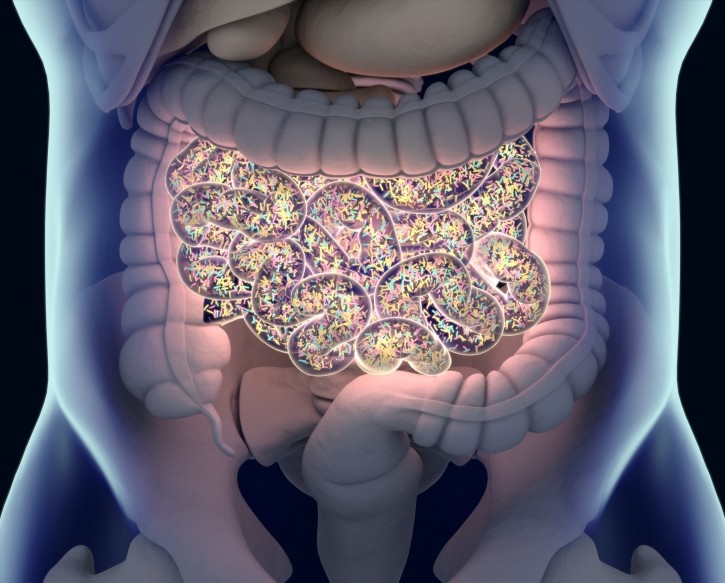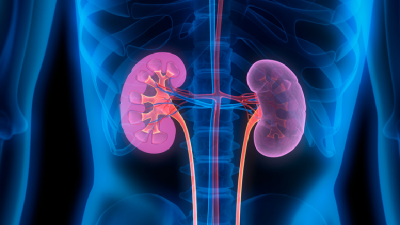Multi-strain probiotic enhances glycaemic control and weight management, research asserts

The study, conducted by researchers from Athens, investigated the effects of supplementation with a multi-strain probiotic supplement 'LactoLevureR' containing Lactobacillus acidophilus, Lactobacillus plantarum, Bifidobacterium lactis, and Saccharomyces boulardii, over 6 months, on individuals with T2D.
Focusing on glycaemic control, lipid levels and alterations in the gut microbiome, the team found the supplement had a positive impact on metabolic parameters, alongside improvements in indices of adiposity.
The research, supported by funding from Uni-Pharma (Pharmaceutical Laboratories S.A.), concludes that the probiotic group displayed significant reductions in HbA1c, fasting blood glucose, and total cholesterol and significant improvements in glycaemic control and waist circumference values.
Background
Type 2 diabetes (T2D) is a common, chronic metabolic disease, with an increasing prevalence often linked to rising obesity rates and an ageing population. Its etiology has traditionally been attributed to a blend of genetic and environmental factors, particularly excessive caloric intake and sedentary lifestyles.
Although it is primarily characterized by disturbances in both insulin secretion and action, its pathogenesis is multifaceted and can vary significantly among individuals.
Composition differences in the gut microbiome are likely associated with the development of T2D .
A healthy gut microbiome is essential for various metabolic functions, including the regulation of blood glucose levels. Probiotic bacteria can ferment dietary fiber in the colon, producing short-chain fatty acids (SCFAs) such as acetate, propionate, and butyrate. SCFAs have been shown to improve insulin sensitivity, enhance glucose metabolism, and reduce inflammation.
Emerging evidence suggests that the gut microbiome can also modulate the absorption of dietary lipids.
And probiotic bacteria may also affect the release of appetite-regulating hormones, such as leptin and ghrelin, potentially helping with weight management.
While there is evidence suggesting a connection between the gut microbiome and the risk of adiposity-related comorbidities such as T2D, a causal link has not been established, and there is no clear consensus in the literature that modulating the gut microbiome—via probiotics or other means—effectively treats obesity and T2D.
Therefore, the aim of the present study was to conduct a randomised, double-blind, placebo-controlled trial over a sufficient duration (six months) to evaluate the impact of probiotic supplementation primarily on glycaemic control (HbA1c), as well as lipid levels, obesity parameters, and associated changes in the gut microbiome in individuals with type 2 diabetes in Greece.
The study
The study utilised the multi-strain probiotic supplement 'LactoLevureR'. A total of 91 patients from the outpatient Diabetes Center of Laiko General Hospital in Athens, Greece (mean age [±SD] 65.12 ± 10.92 years, 62.6% males), were randomised to receive the probiotic supplement or a matching placebo capsule, once daily, for 6 months.
Blood chemistries and anthropometric parameters were conducted every 3 months, and stool samples were collected at baseline and at 6 months.
Resulting data revealed significant reductions in HbA1c, fasting blood glucose, and total cholesterol in participants treated with the probiotic supplement (n = 46) compared to the controls (n = 45), even after adjustment for a greater decrease in adiposity (waist circumference).
Although there were no statistically significant differences in the diversity of the gut microbiome (α and β diversity), the administration of probiotics did influence several genera, metabolites, and key enzymes associated with diabetes. Overall, the administration of the multi-strain probiotic LactoLevureR over a 6-month period in individuals with T2D was well-tolerated and had a positive impact on metabolic parameters, alongside improvements in indices of adiposity.
The researchers note that the most significant finding involved the effects of probiotic supplementation on glycemia.
In the control group, there was a slight reduction in mean HbA1c values at both 3 and 6 months (−0.12% and −0.14%, respectively), likely explained by modest decreases in waist circumference (0.41 cm and 0.44 cm, respectively).
Whereas the intervention group displayed more significant reductions in HbA1c levels at both time points (−0.42% and −0.73%, respectively), even after accounting for a more substantial decrease in waist circumference (3.63 cm at 6 months).
The researchers state: "These findings underscore the consistent and enduring effectiveness of the probiotic intervention in reducing HbA1c levels, even when considering potential confounding factors like changes in waist circumference.
"These statistically significant improvements in glycaemic control and waist circumference values can bring about clinically meaningful benefits for people with diabetes, including reduced risk of diabetes-related complications (such as cardiovascular disease, neuropathy, retinopathy, and kidney disease), leading to an enhanced quality of life.
"Moreover, a decrease in waist circumference typically reflects a reduction in visceral fat, which is linked to insulin resistance, and thus, waist circumference reduction can lead to improved insulin sensitivity, making it easier for the body to utilize insulin effectively. This may also allow individuals to reduce their reliance on diabetes medications, which can result in fewer medication side effects and a lower financial burden on healthcare costs. Similar favourable trends were observed in fasting blood glucose (FBG) levels, favouring the intervention group.
"Notably, individuals with higher baseline glycemia (HbA1c or FBG) experienced more pronounced reductions in glycaemic levels with probiotics, a phenomenon commonly seen with other antidiabetic treatments as well."
The strengths of the study include the relatively long-term follow-up, its random, double-blind distribution of participants with stable lifestyle/dietary and medical treatment over the course of the study, and the fact that stool microbial analysis was performed.
However, participant sample size, particularly in the microbiome sub-study, was not large. The authors note the results are not generalisable to all strains and patients as the effectiveness of probiotics for glycaemic control is known to be influenced by specific strains, dosages, and individual factors, and some individuals may experience side effects such as bloating, gas, or diarrhoea.
Source: Nutrients
https://doi.org/10.3390/nu15214663 (registering DOI)
"The Effect of Probiotic Supplements on Metabolic Parameters of People with Type 2 Diabetes in Greece—A Randomized, Double-Blind, Placebo-Controlled Study"
Authors: Zikou, E.; Dovrolis, N.; Dimosthenopoulos, C.; Gazouli, M.; Makrilakis, K.


















